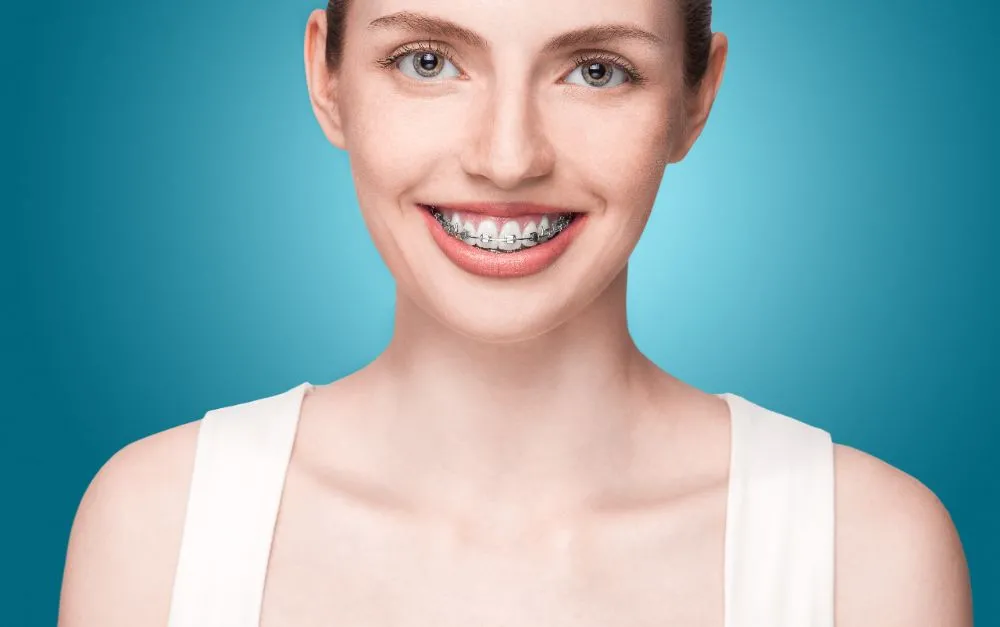After you lose your baby teeth and your adult teeth start coming in, around age 12 your second molars or “12-year molars” will erupt. Even later, you still have one more set of teeth to gain. Wisdom teeth are your third molars – one of each grows in the four back corners of your mouth, and they usually come in during your late teen years or as a young adult.
Many who have braces or are thinking about getting braces during this time in their life worry that their wisdom teeth will mess up what their braces are trying to correct or make their teeth even more crooked.
These teeth do not always have a negative impact on what is happening with your braces, but there are still some precautions you should take if you know your wisdom teeth are coming in soon.
What Are Wisdom Teeth?
For many, wisdom teeth come in the back of the mouth around the ages of 17 to 21. In fact, they’re called wisdom teeth because they appear at a more mature age than the rest of your adult teeth. Scientists believe that historically, wisdom teeth were needed to replace worn out molars. The human diet used to consist of things that were much harder to chew, so these teeth were a helpful addition.
Now that our diet is generally softer than it was generations ago, there is not as much jaw room for these new molars to grow into.
When wisdom teeth come in correctly, they can help to chew food easier. But if they come in crooked or you don’t have enough space in your mouth for them, they can cause issues.
Can Wisdom Teeth Affect Your Braces?
One of the biggest concerns with teens who have braces is their teeth will not stay straight forever after they finish orthodontic treatment. Wearing your retainer is key to making sure this doesn’t happen and you keep your perfect smile forever.
And when your wisdom teeth come in, that retainer will still be able to keep your teeth in line. Research has shown when wisdom teeth grow all the way, they do not exert enough pressure on the rest of your teeth to move them significantly.
Age is the main culprit to your teeth becoming crooked again. As we get older, our teeth move on their own, regardless of the growth of wisdom teeth. That’s why it’s so important to continue to wear your retainer consistently.
When Should You Get Your Wisdom Teeth Removed?
Even though they might not impact your braces or your smile, wisdom teeth can cause many other issues. It’s extremely important to talk to your orthodontist and your dentist about what to do when your wisdom teeth start to come in.
Sometimes, wisdom teeth do not come through your gums all the way. When this happens, they are impacted, or stuck in the jaw or under your gums. This can lead to extreme discomfort and can even cause cysts in your mouth from infection.
If wisdom teeth only come through partially, they can trap food, which can also lead to infection or cavities. When they come through all the way but your jaw doesn’t have room for them in the back of your mouth, they can cause issues with flossing and result in some discomfort.
Many people aren’t affected by their wisdom teeth at all and are able to keep them their whole life. Your orthodontist and dentist will know when or if you should have your wisdom teeth taken out to avoid any complications. Scans and x-rays will tell them well in advance when your teeth will come in so they can create a treatment plan for you.
If you have braces and your wisdom teeth start to come in, or you are afraid your wisdom teeth will affect all the orthodontic work from your braces, talk to your orthodontist. Everyone’s mouth is different and your doctor will have a plan of action to limit the impact your wisdom teeth have on your smile.
Call Charleston Orthodontic Specialists today at (843) 4-BRACES if you have any concerns about your wisdom teeth and braces.
